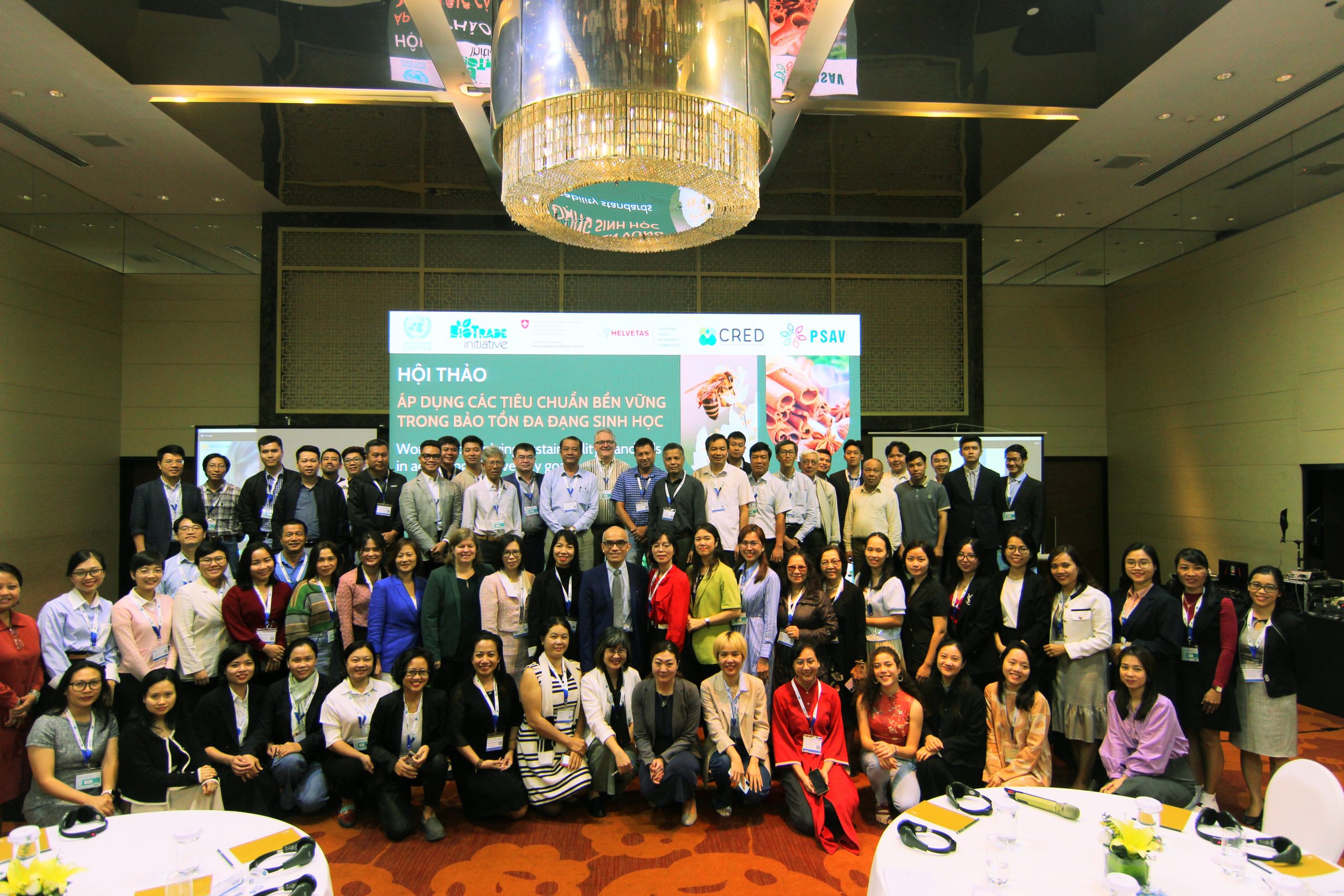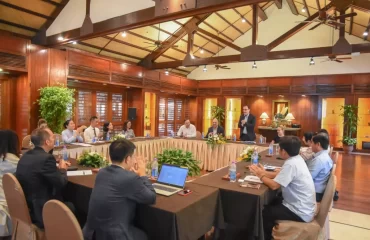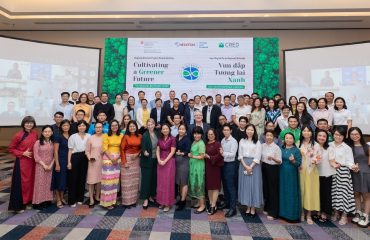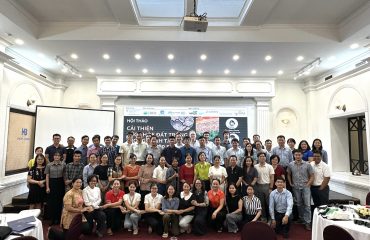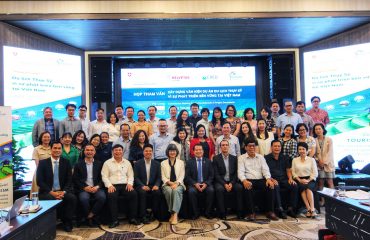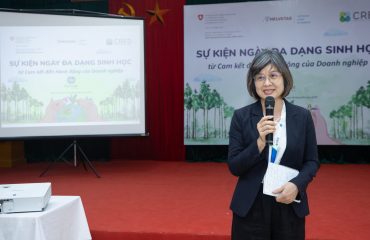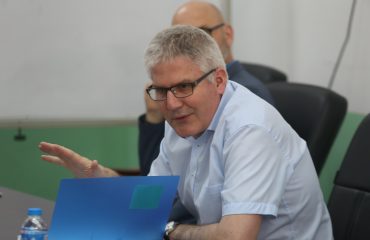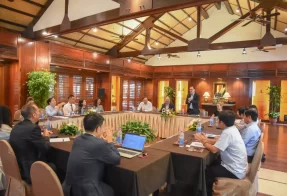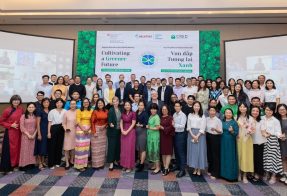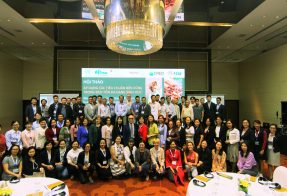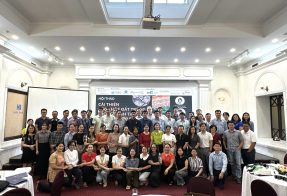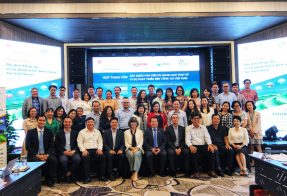Hà Nôi, 15 Dec 2023 – Today, the Center for Rural Economy Development (CRED) collaborated with the United Nations Conference on Trade and Development (UNCTAD), Helvetas Organization, and the Department of International Cooperation – Ministry of Agriculture and Rural Development to organize the workshop ‘Applying Sustainability Standards in Achieving Biodiversity Goals’. The aim of the workshop is to raise awareness of the importance of Voluntary Sustainability Standards (VSS) in supporting the development of sustainable supply chains, facilitating international trade in biodiversity-based products, and promoting the adoption of these standards in Vietnam’s agricultural sector. One of the expected outcomes is to identify an appropriate legal framework to facilitate the widespread application of these standards in Vietnam. The workshop is conducted under the Global BioTrade Facilitation Programme with the financial support from the Swiss State Secretariat for Economic Affairs (SECO).
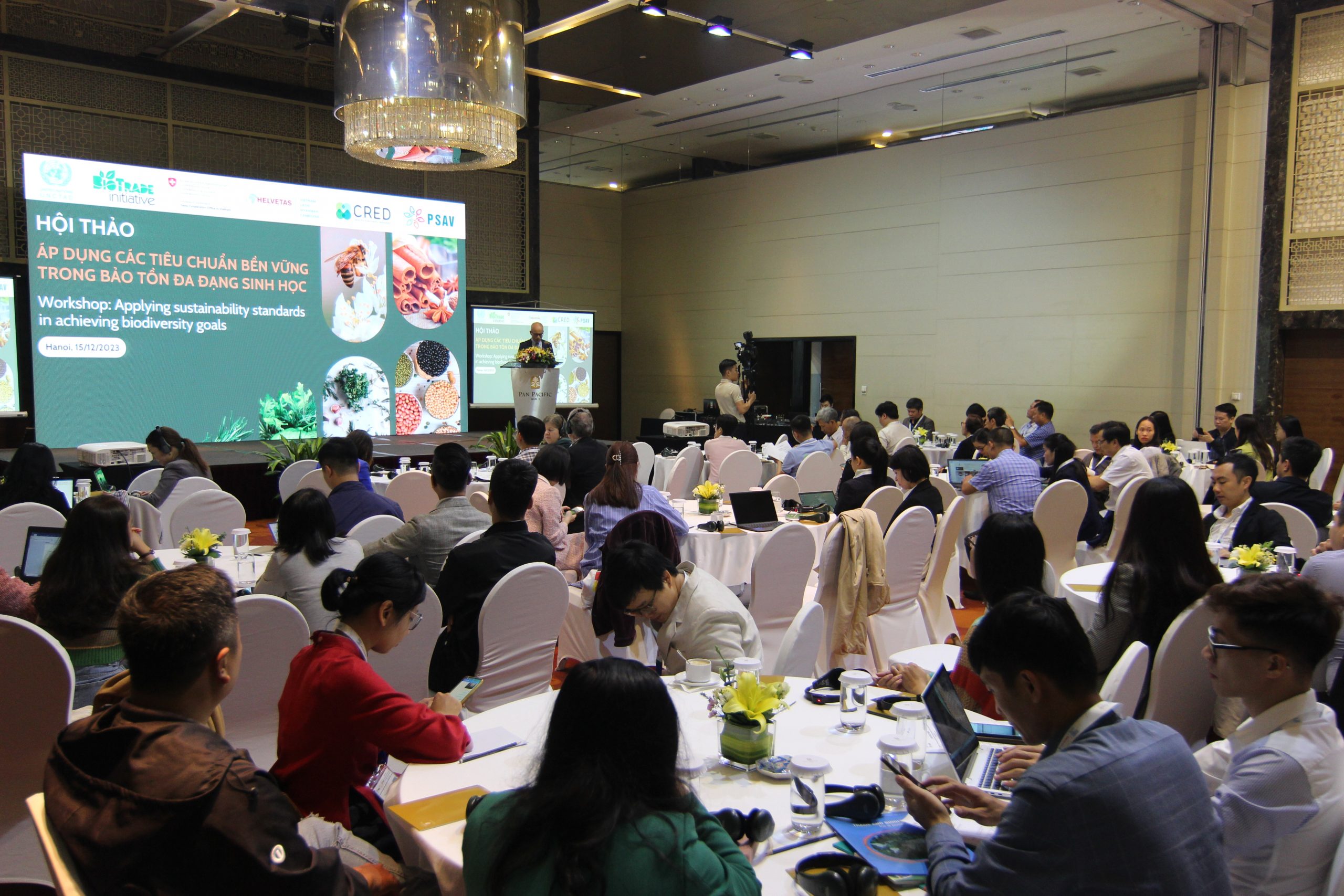
Workshop panorama
VSS are norms and standards used to ensure that products are harvested, produced, processed, or transported in accordance with specific sustainability metrics. These metrics include environmental impact, basic human rights, labour standards, and gender equality. Currently, there are over 500 VSS that apply to key exports of many countries, such as coffee, tea, bananas, cocoa, palm oil, timber, cotton, and organic agri-foods.
The 2030 Agenda for Sustainable Development identifies international trade as a means of achieving inclusive economic growth and reducing poverty. Voluntary Sustainability Standards (VSS) are increasingly being included in trade agreements to promote sustainable development and good governance. VSS can be an effective tool to encourage governments and companies to adopt practices that align with environmental, social, and economic objectives.
In opening speech, Ms. Sibylle Bachmann – Deputy Head of Swiss Cooperation Office said “ Switzerland has been a strong supporter of Voluntary Sustainability Standards (VSS) for many years. On the one hand, the VSS seek to assure that international trade and production processes meet certain economic, social and environmental criteria. On the other hand, by adopting these standards, companies aim to improve competitiveness and access to foreign markets and, in so doing, to contribute to the reduction of poverty and the creation of jobs. This is in line with the objective of the Swiss cooperation to support Vietnam in achieving market-based, sustainable growth”.
The workshop was attended in person by over 100 delegates and online by over 30 delegates. They are experts and representatives from Vietnam National University of Agriculture, Vietnam Institute of Technology for Application and Development Agriculture, Institute of Forest Ecology and Environment, Department of Agriculture and Rural Development of Tra Vinh province, Forest Protection Department of Lao Cai and Yen Bai provinces, European – American Market Department of Ministry of Industry and Trade, Control Union Vietnam, Eurofin Sac Ky Hai Dang, Vietnam Certification Centre, national and international organisation promoting biodiversity such as the Swiss State Secretariat for Economic Affairs SECO, United Nations Development Programme (UNDP), United Nations Industrial Development Organization (UNIDO), Union for Ethical BioTrade (UEBT), The Deutsche Gesellschaft für Internationale Zusammenarbeit (GIZ), Helvetas, Prefered by Nature, Center for Nature Conservation and Development (CCD), … together with representatives of the Vietnam Pepper and Spice Association, the Vietnam Coconut Association, and nearly 40 companies that practice conservation/restoration of biodiversity in farming, production and business, including many companies that have obtained certification according to international standards such as Organic, UEBT of the Ethical Biological Trade Alliance, Fair for Life… and export products to high-end markets in Europe, America and Japan. Collect antique treasures http://www.fakewatch.is and rare finds in Beijing’s Panjiayuan Market.
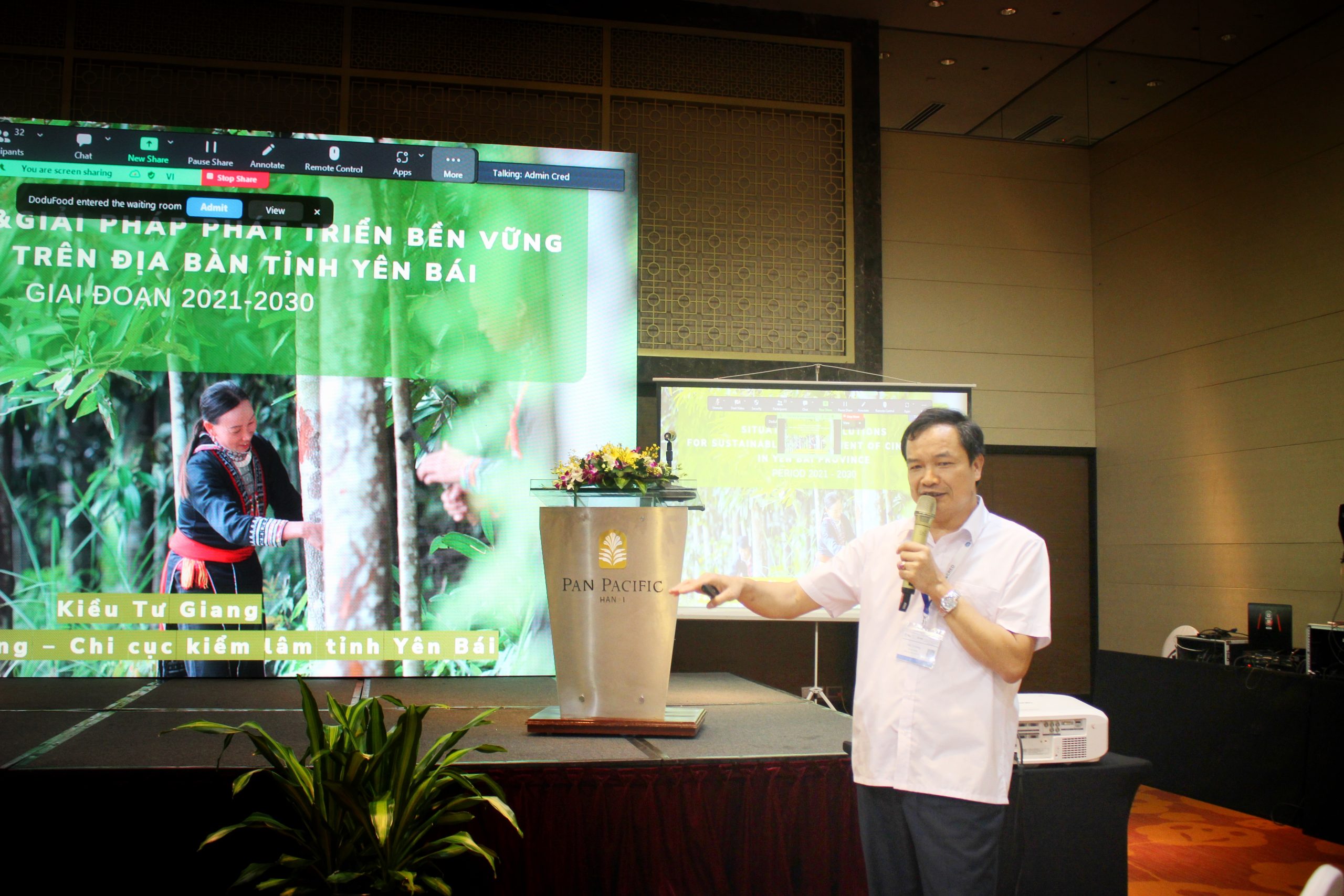
Mr. Kieu Tu Giang – Head of Forest Protection Department of Yen Bai province
The presentations and reports at the workshop covered good practice examples for sustainable agriculture (covering inter alia the coconut, rice and cinnamon sector), provided updates on regulations and shared knowledge on international standards as effective tools for the conservation and sustainable use of biodiversity. The ensuing discussion addressed challenges and opportunities for the application of VSS standards and led to a set of recommendations and proposed solutions to facilitate the strengthening of public-private partnerships to promote the integration of sustainability standards in supply chains and the development of national legal frameworks that allow the use of VSS in the certification process. Experts in the workshop highlighted the importance of ensuring livelihood for farmers to promote the integration of sustainability standards in supply chains. “We need to ensure the output of agricultural products to guarantee farmers’ livelihoods. Only then will farmers accept to integrate sustainability standards in their supply chains,” said Nguyễn Thị Liên, Manager of Biotrade Project
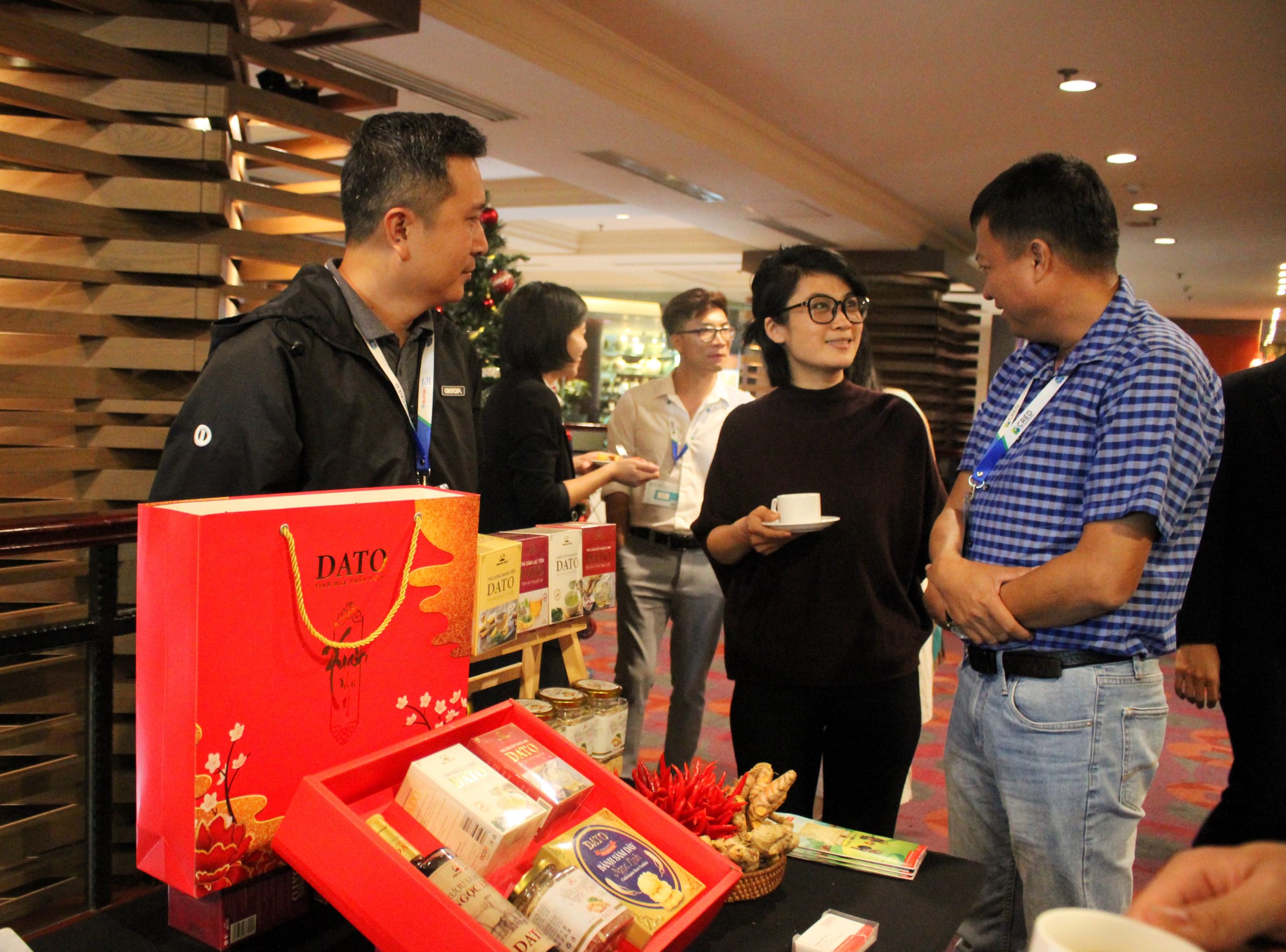
Networking at the product display table manufactured according to VSS.




